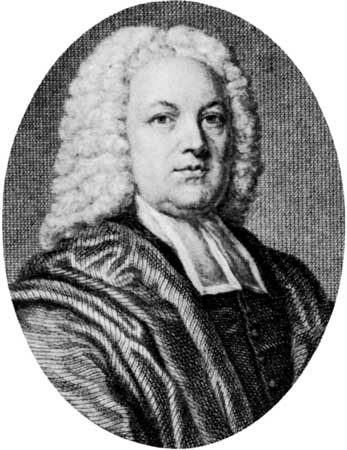I’ve emerged from reading the (roughly) 2 395 footnotes Warburton affixes to his edition of Shakespeare’s plays, and once more have a few observations about how this editor uses the idea of that actor. Like Pope, whom he praises, and like Hanmer, whom he criticises, Warburton is very antitheatrical, and doesn’t mince his words. As well as reprinting Pope’s preface and its denigration of the influence of the stage on Shakespeare’s poetry, Warburton’s own short preface reiterates these points and even goes as far as to suggest that Shakespeare, as an actor, did not care for posterity, thus opening the door to the corruption of his texts at the hands of the player-editors and others.

When Warburton does talk about “some player” (always nameless), however, he does so with gusto. On no less than nine occasions, they are accused of inserting “trash” or “nonsense” into the text, functioning as a kind of scapegoat for Shakespeare who couldn’t have possibly written such things as this, or – elsewhere – such “ribaldry” as “no barricado for a belly”. As well as being importers of nonsense and smut, actors are also “stupid”: they don’t know Roscius from Aesopus, misunderstand the nature of Richard III’s bravery, and have – this is my favourite – “a pitiful ambition to be witty”. Such stupidity also manifests itself in a penchant for favouring sound over sense, leading to yet more “foolish insertion” or emendation for such editors as Warburton to sort out. In such a portrait, the actor becomes a figure with very little agency, meant only to transmit the author’s work yet all too often responding as much to the demands of the audience for cheap thrills as to the needs of bardolatrous posterity.
This view of the actor as all too impressionable reoccurs in a strange long note appended to Hamlet in which Warburton argues that the text the First Player performs at the prince’s request actually represents Shakespeare’s conception of an ideal tragedy. Such a reading is supported, says Warburton, as the lines about Pyrrhus have such a powerful effect on the actor while silly Polonius takes it as bombast.
As Shakespear has shown the effects which a fine description of nature, heightened with all the ornaments of art, had upon an intelligent player, whose business habituates him to enter intimately and deeply into the characters of men and manners, and to give nature its free workings on all occasions; so he has artfully shown what effects the very same scene would have on a quite different man, Polonius
The miniature ‘art of acting’ encapsulatd here parallels ideas found in Aaron Hill and John Hill that will be explored in my second chapter, but the interest here lies in the conception of the player as someone who intelligently gives himself over to nature’s “free working”, as someone, in other words, who is more passive than active. From such an idea, even if Warburton calls the player intelligent here, there is only a small step to the stupid players lambasted in the footnotes, mindlessly repeating the text without a sufficiently sharp awareness of true nature that would allow them to spot the manifest errors in it.
Such sensitivity is the province of the editor, whose work, in Warburton’s view, should incorporate all the branches of criticism (to explain, to praise or denigrate, and to restore). If Hanmer’s edition of Shakespeare was the paper equivalent of a monument to Shakespeare, Warburton see his therefore as a monument to critical process. In such a work, the actor has a very small place indeed, so small that even Shakespeare, if deplorably influenced by the stage, is also described as both having “written off hand” and, like the scrupulous editor, “corrected”.
BONUS
Warburton includes a league table of Shakespeare plays, splitting comedies and tragedies by class. Do you agree with him?
COMEDIES
Class One: The Tempest, The Merry Wives of Windsor, Measure for Measure, The Merchant of Venice, Twelfth Night
Class Two: A Midsummer Night’s Dream, Much Ado About Nothing, As You Like It, All’s Well that Ends Well, The Winter’s Tale
Class Three: Two Gentlemen of Verona, Love’s Labour’s Lost
Class Four: The Taming of the Shrew, The Comedy of Errors
TRAGEDIES
Class One: Henry IV part I, Henry IV part II, King Lear, Macbeth, Julius Caesar, Hamlet, Othello
Class Two: King John, Henry V, Richard III, Henry VIII, Timon, Antony and Cleopatra, Cymbeline
Class Three: Richard II, Coriolanus, Troilus and Cressida, Romeo and Juliet
Class Four: Henry VI part I, Henry VI part II, Hanry VI part III, Titus Andronicus
I personally disagree with a lot of this, finding Romeo and Juliet a bit too low, and Timon (not to mention The Merry Wives) rather too high, &c.